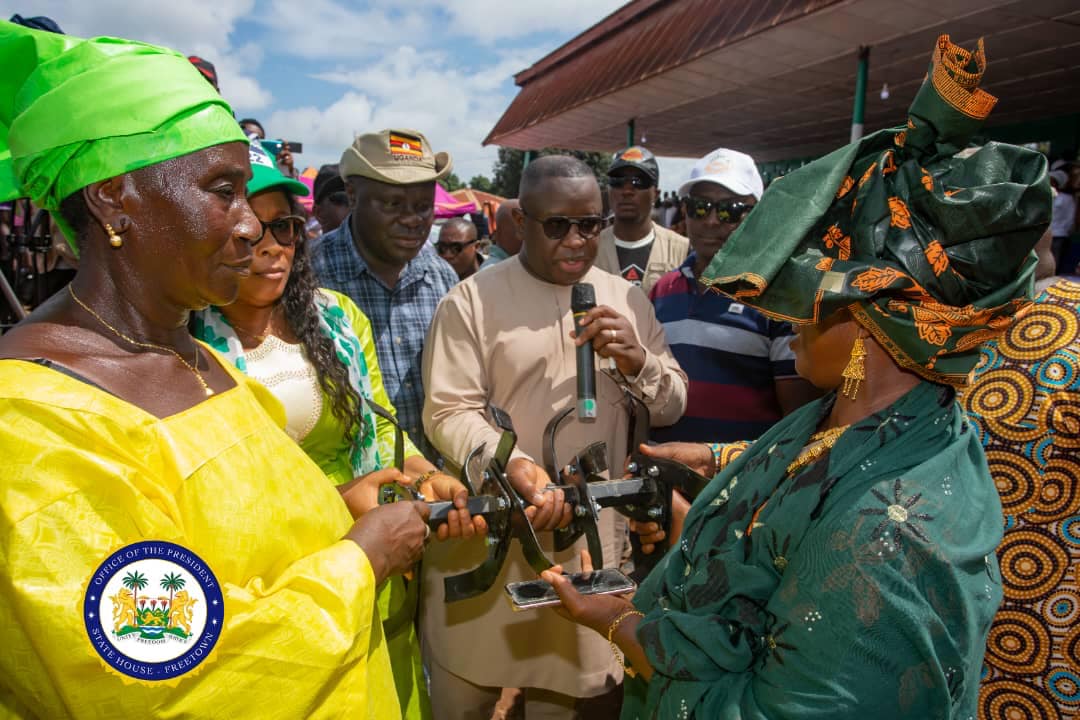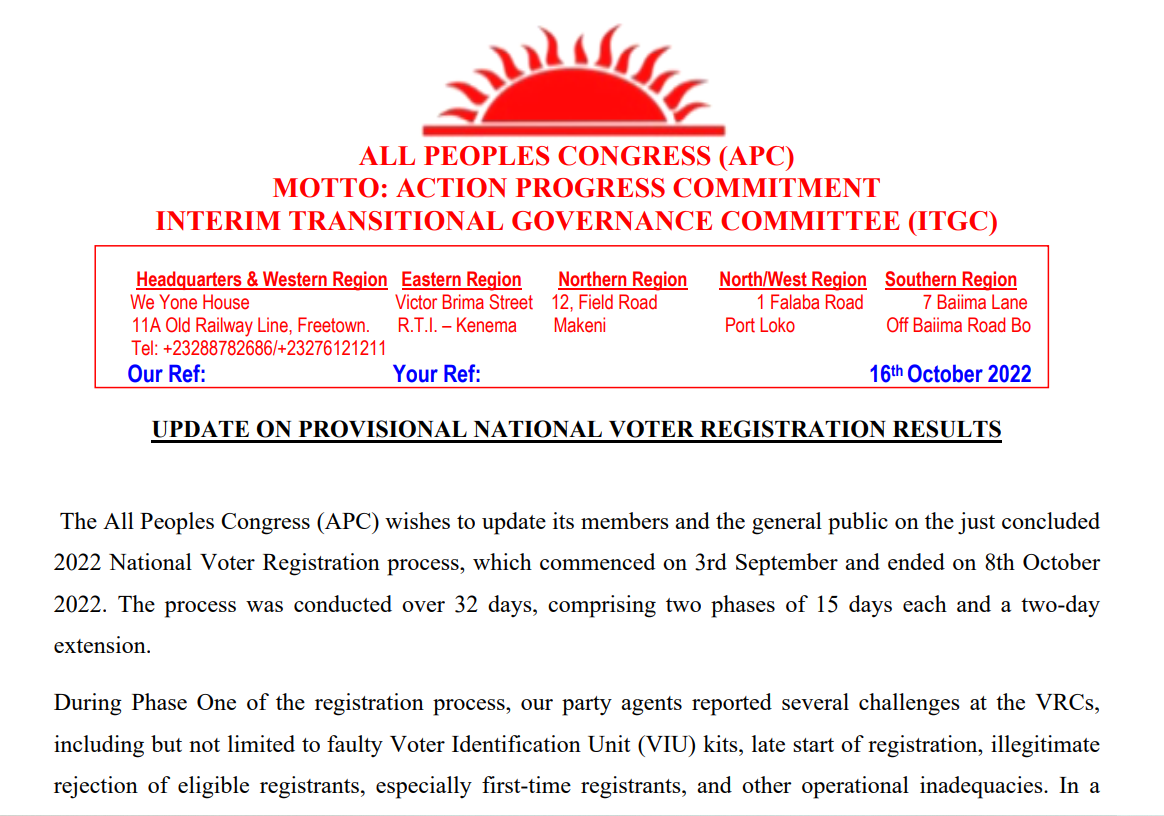By State House Media and Communications Unit
President Dr Julius Maada Bio has observed this year’s World Food Day with compatriots in Kabala, with a long history of agricultural shows, and launched the Interactive Voice Response, IVR, for farmers to ask questions about food production in all local languages.
“Beyond mechanisation, we are also happy to announce today that we are deploying technology to launch an agricultural Interactive Voice Response (IVR) system and a call centre to provide agriculture advisory services to farmers.
“I am therefore very pleased to join you here today to launch the IVR. By pressing 899, farmers are now assured of sound farming advice by calling toll-free on any mobile phone – smart or button-push – and on any telephone network. Additionally, farmers can receive these customised messages in their own local languages,” he said.
He said the value of the IVR and enhanced agricultural extension services would strengthen the capacity of rural small-scale and subsistence farmers but suggested that enhanced interactive functionalities of the service could be provided by deploying more real voices at the other end of the system.
The President used the opportunity to thank and commend development partners for supporting his human capital development priorities of education, healthcare, and food security, assuring them that his government was determined to use the country’s fertile land to produce more food.
He noted that the indicators for rice self-sufficiency signified positive growth because there was a general uptick in overall food production, cash crop production, and livestock production, adding that his government was eager to support more private sector participation in agriculture at all scales.
Host Paramount Chief Balansama Alie Marah said it was a great honour to showcase and celebrate agriculture in the country, adding that a lot of transformation was happening in the agricultural sector under your leadership of the President because of the premium he had placed on agriculture.
Country Representative of the Food and Agriculture Organization of the United Nations, Saeed Abubakar Bancie, encouraged the government and all Sierra Leoneans to harness the power of solidarity and collective action.
He further went on to state that the agrifood systems hold great potential for a more equitable and prosperous future, adding that they were interlinked to many areas of lives and economy from agriculture to natural resources, to energy, to health and many more.
“FAO in collaboration with the European Union has selected Sierra Leone to be among the first five countries to benefit from the post-United Nations food systems dialogue initiative to develop a national action plan to support resource mobilisation and transformation process.
“I want to end by assuring the President that FAO’s technical expertise will continue to be at the disposal of the Government of the Republic of Sierra Leone to utilise as it strives to achieve the SDGs,” he concluded.
Chairlady for the National Federation of Farmers of Sierra Leone, Madam Yatta Samah, appreciated the government for its support to agriculture, adding that they and their allies were creating an enabling environment for all actors leading national efforts toward more efficient, inclusive, resilient and sustainable agriculture and food security systems.
Minister of Agriculture, Abu Bakarr Karim, said the theme for the 2022 celebration was “Leave No One Behind: Better Production, Better Nutrition, Better Environment, and Better Life for All”, adding that in keeping with that theme farmers and community people now appreciated how agriculture was integrating the country, bridging otherwise unbridgeable areas, thereby leaving no one behind.
“Your Excellency, farmers convey their appreciation for the valuable support you have given and continue to give to the agriculture sector through the Policy Shift of 2021, aimed at invigorating private sector investment in agriculture. The policy shift set aside USD 50 million at the Rokel Commercial and Sierra Leone Commercial Banks to give spine to the private sector agriculture investment initiative,” he said.
He added that Government had also provided approximately 400 pieces of agricultural machinery and about 2000 pieces of related implements, which were made available to the private sector, through the Machine Ring System.
“As a result, rice self-sufficiency prospects indicate an increase of 24.76% from the 2019/2020 to the 2021/2022 production season. Despite the socio-economic squeeze the Ukraine-Russia War and COVID-19 generated, at no point in these twin crises did Sierra Leone run out of food, unlike other countries. Local production, stimulated by the Policy Shift, kept many communities relatively food and nutrition-secure, according to Sierra Leone Food Security Working Group consisting of Development Partner Organisations,” he said.













